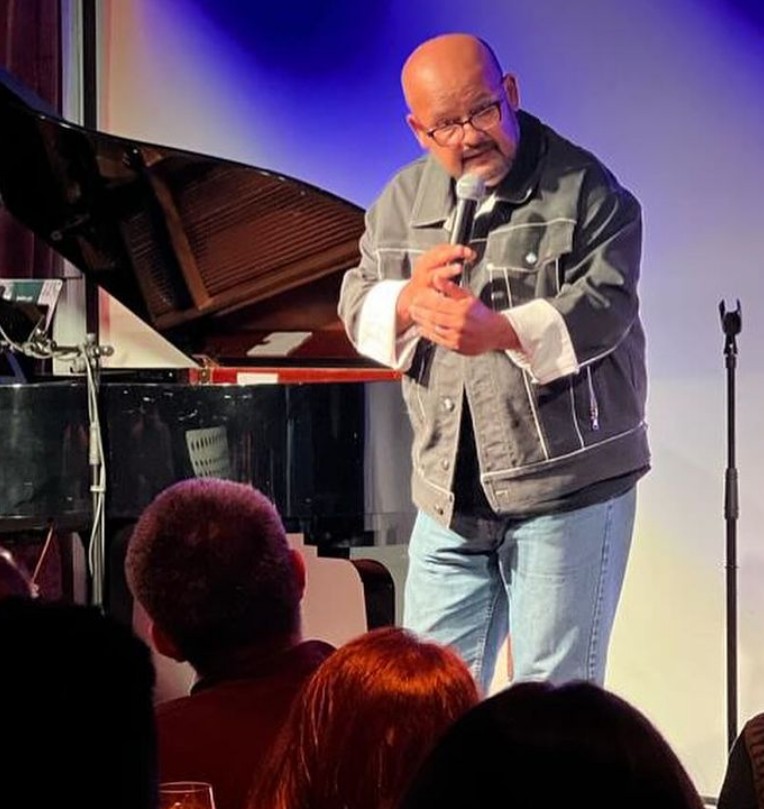by Prema Jesuthasan

I have long enjoyed Harith Iskander’s comedy. I have watched videos of his skits and performances, and have seen him on stage with others, but I had not seen him perform his own show “live”.
Happily, that changed a few weeks ago. His “A Funnier Malaysia” show certainly caused much laughter, but it also provoked thought, which I appreciated.
When I watch a show or performance, it becomes far more meaningful if it is something that makes me think about it days later, rather than just something to be enjoyed in the moment.
The primary question Harith wanted the audience to think about is something I think everyone should ponder. What does it mean to be a Malaysian?
When you say “Malaysian”, what is the first thing that comes to mind? Harith pointed out that with some countries, the answer is easy.
For example, the Japanese are known for their culture of politeness, of bowing. And the recent plane collision in Japan has many talking about how their ability to remain calm and listen to directions was the main reason everyone on the Airbus 350 was able to exit the plane safely despite it being rapidly engulfed by flames.
Harith spoke about how Thai people are polite and gentle in their speech and are always ready to offer a cheerful, respectful greeting to anyone and everyone they meet. These are generalities, of course, and there are exceptions to every generalisation, but his point was that these aspects of Japanese and Thai culture make it easier to identify people from those nations.
When Harith asked the audience what their immediate response is when asked about Malaysia and Malaysian culture, the majority of answers predictably revolved around food. We do love our food, don’t we?
Which is why netizens were outraged when a report came out recently that a Japanese man, when asked what country he hated and why, responded by saying Malaysia, because of its food. We are loyal to our delicious food, which reflects the variety in our rich racial heritage.
It is thus not surprising that during the show, people responded to Harith by calling out, “nasi lemak!” or “durian!” or “cendol!” These answers were funny and true, but only a tiny facet of who and what we are.
Unlike many others in the audience, I did not yell out a response because my brain does not work that way. I like to let my thoughts percolate and sort themselves out in my mind before I give them voice.
I have never liked being put on the spot or asked a question that required an immediate response, because being thoughtful matters to me. Therefore, I let the question sit in the back of my mind.
A day later, I had my answer. Of course, Harith was long gone so cannot know what I think, unless he happens to read this. But I like what I came up with, and I wanted to share it with other Malaysians.
When I take the time to think about what it means to be a Malaysian, the words “gotong royong” come to mind. It is something that I think represents us in our best light.
For those unfamiliar with this phrase, it means to come together to help, to make a positive change, without thought of personal gain. It is sharing responsibility for the betterment of all.
When there is hardship, be it floods, landslides and other natural disasters, or an economic downturn that affects charities, nonprofits or religious organisations, to give just a few examples, Malaysians band together.
We donate money or goods, and we turn up in person to lend a helping hand. From the time I was a child, I remember seeing and reading about how people are always ready to help their fellow Malaysians in times of trouble. Neighbours band together to help when one in their group needs assistance.
It is natural for people to lose sight of what makes their country special or different. We become complacent about our blessings, or get caught up in our own lives, wading through our own difficulties, and it becomes easy to turn a blind eye to others’ suffering.
Additionally, the 2020 pandemic upended lives and cut people off from in-person socialisation for many months. When something like that happens, it is easy to become insular and focus on your own needs.
But we are Malaysians. We care about each other. When someone needs our help, we show up.
The spirit of “gotong royong” is our heritage, our culture, our strength. I hope it can become such a natural part of being Malaysian that the next time Harith or someone else asks us what being Malaysian means, that is our first response. Followed closely by nasi lemak, of course!